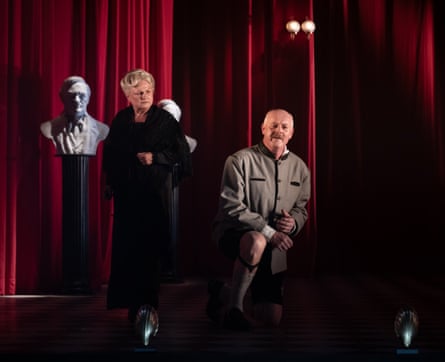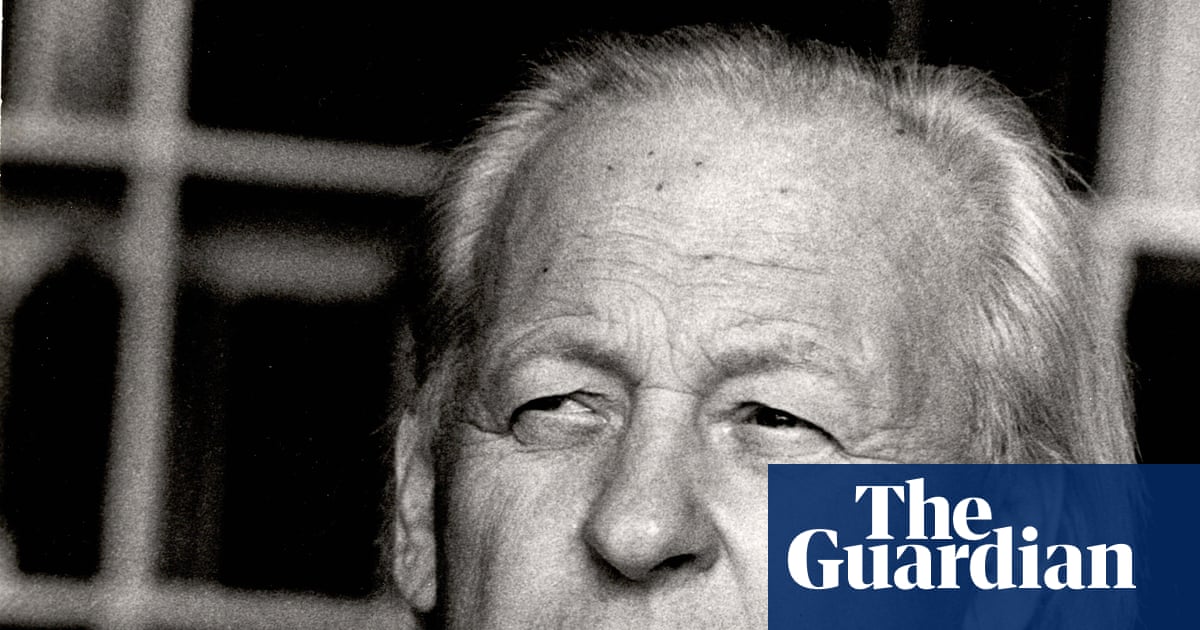The Israeli-born Avner Dorman’s opera focuses on Richard Wagner’s clan and the composer’s legacy after his death, together with the family in-fighting presided over by his widow, Cosima, at the family home, Wahnfried. When the idea of the opera was first mooted, Wagner’s great-granddaughter Eva approved it, “as long as Cosima doesn’t come out of it very well”. She doesn’t, almost no one does, and certainly not the extraordinary and appalling figure of Houston Chamberlain.
Chamberlain is so little known that he could be a figment of librettists Lutz Hübner and Sarah Nemitz’s imagination, yet the opera’s historical veracity is impeccable. The English Germanophile, a failed scientist and admirer of Wagner, inveigled his way into Cosima’s household, eventually marrying Wagner’s daughter Eva. He was, through his writings on German supremacy, a crucial architect of the antisemitism and hatred that Kaiser Wilhelm II and Adolf Hitler admired and upheld.

From the outset, when Chamberlain appears as a naive and ridiculous bumbler who believes that the order of the world is for the strong to kill the weak, the tenor of the narrative is chilling and deeply disquieting, despite moments of clowning black humour. As Dorman observed at the time of the world premiere in Germany in 2017, the same horrors are being perpetrated in the world today – and so much ignored – making Longborough Festival Opera’s UK premiere and director Polly Graham’s brilliant production important and all the braver.
The irony in the opera’s title is implicit. Wagner named his home in Bayreuth, Bavaria, Wahnfried, meaning free from delusion, but this is a portrait of madness writ large against a background of blood-red velvet drapes. The deluded fervour first of the Wagnerites and then of Mark Le Brocq’s Chamberlain – simply a tour de force – is monstrous. Le Broq and Susan Bullock’s imperious Cosima are a hateful pair, their philosophy of hate for the Jews carefully delineated. It’s Chamberlain who pushes Cosima to banish her daughter Isolde, spirited into a Tardis-like box with the demand that she reimagine herself in keeping with the true Wagner ethos; he too insists on her brother Siegfried’s homosexuality being hidden. Andrew Watts’s impassioned aria to his lover is a focal point, while the picture of Siegfried’s hardly idyllic marriage to Winifred Williams – the better known figure here for her insidious cosying up to Hitler, sung by the formidable Alexandra Lowe – is a further marker of the authenticity of the piece.

Written in 20 scenes, each setting flagged up on a small blackboard, the driving energy of the second of two acts is the more convincing. Dorman’s music, multifaceted in its references – Shostakovich, Prokofiev, Wagner himself – is incisive, with often brittle instrumentation, and dynamically paced by conductor Justin Brown. The impeccable stagecraft carries the evening, but there are two characters who haunt Chamberlain to inject a further dimension. Hermann Levi – the Jew who conducted the Bayreuth premiere of Parsifal, the opera that became core to the family wrangling – is sympathetically portrayed, embracing the terrible and ever-present contradictions, perhaps an alter ego for Dorman. But it is the mischievous figure of Oskar McCarthy’s Wagner-Daemon, the composer’s familiar after death, whose disapproval brings a lighter note. It’s his final judgment that Chamberlain, who aspired to be counted alongside Kant, Goethe and Wagner himself, will – like all Wagner’s heroes – ultimately be a failure. It was Dorman, taking a bow at the curtain call, who was greeted as a hero.

 3 months ago
161
3 months ago
161

















































